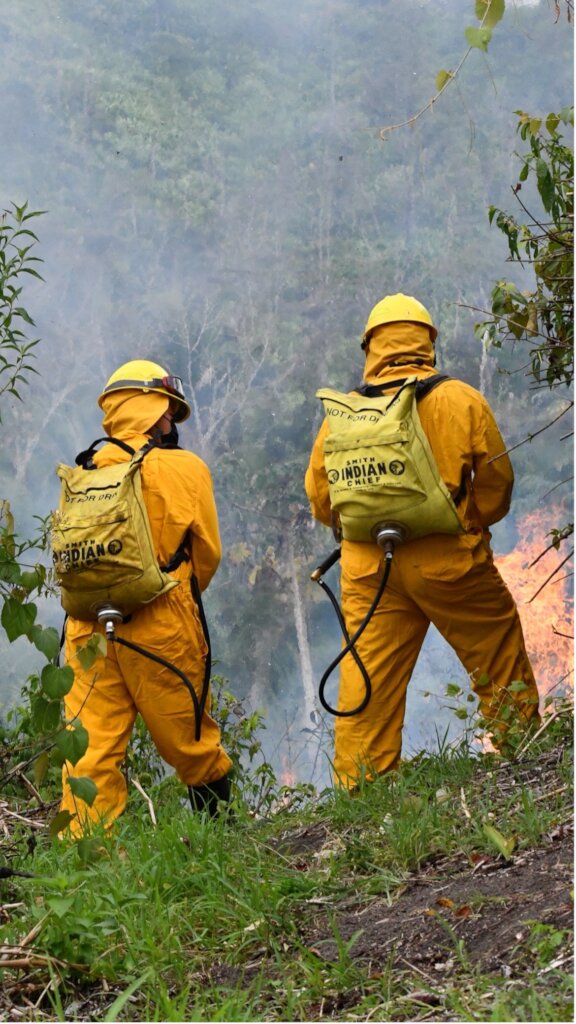By Carlene Myvett | Development Manager
Wild fires, also known as forest fires, can be defined as uncontrolled or non-prescribed burning in natural ecosystems. While the earlier perception was that all fires are bad and had to be suppressed, there has since been consensus in the scientific community that fire is a natural and important factor. Fires can be beneficial in helping to release nutrients from dead organic matter, reducing accumulation of deadwood which acts as microhabitats for insect pests, and preventing grasslands and pine forests from being overrun with woody shrubs and other trees of lesser value. Additionally, some plants require fire to germinate.
There are tree types of forest fires: ground fires which occur in substrate beneath the forest floor, surface fires which occur in detritus on the forest floor and crown fires which occur along the length of trees. Crown fires are the most destructive whereby they can destroy large swathes of forests, threaten wildlife, contribute to pollution and threaten human well-being.
Human activities, exacerbated by the effects of climate change, is resulting in increasing rates of destructive forest fires. These activities include agriculture/ranching where fires are used to clear lands and hunting, where fire is used to lure prey.
One tool that has been effective in the management of destructive forest fires is prescribed fires or controlled burns. As part of its outreach efforts, Ya’axché provides fire management trainings with community leaders and interested farmers in the Maya Golden Landscape of southern Belize. Among other things, famers are taught how to safely conduct prescribed fires. In the 2022 Fire season, Ya’axché supported farmers from two communities to successfully conduct prescribed burns. This support came in the provision of essential gears/equipment.
Ya’axché has identified the need to continue to spread awareness on fire prevention and or proper management. Your continued support of our campaign will make it possible to implement vital trainings, and procure additional firefighting equipment, to farmers and community leaders in our target villages.
Project reports on GlobalGiving are posted directly to globalgiving.org by Project Leaders as they are completed, generally every 3-4 months. To protect the integrity of these documents, GlobalGiving does not alter them; therefore you may find some language or formatting issues.
If you donate to this project or have donated to this project, you can receive an email when this project posts a report. You can also subscribe for reports without donating.
